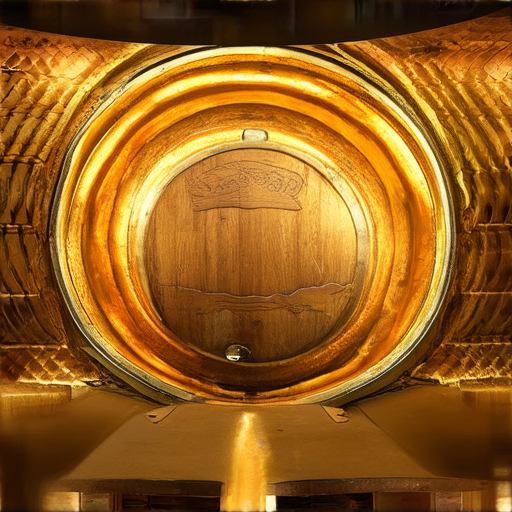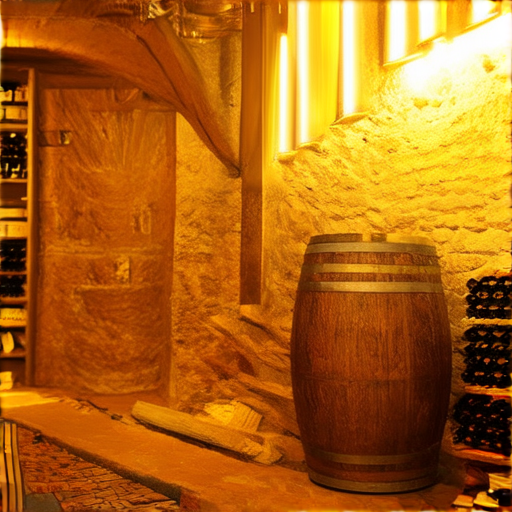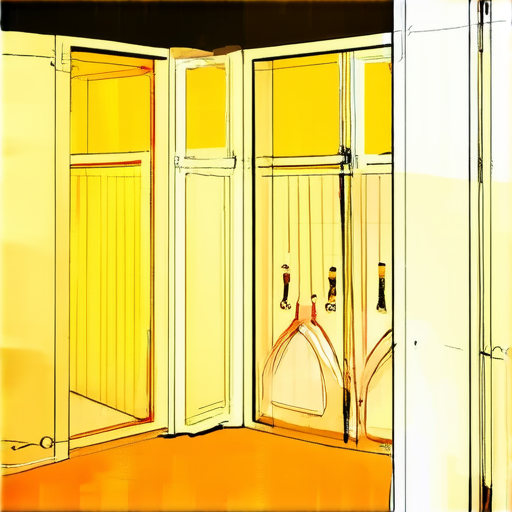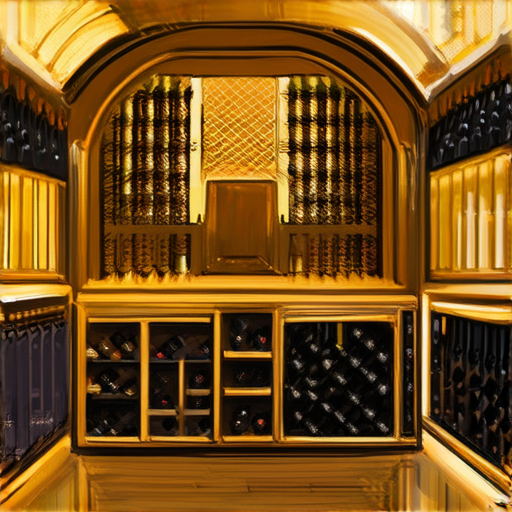For those who share a passion for fine wines and a desire to elevate their palate and career, wine tasting courses offer a unique opportunity to explore the world of wine in depth. Whether you’re looking to develop your knowledge and skills as a wine enthusiast, or seeking to pursue a career in the wine industry, these courses provide a comprehensive education in the art of wine tasting.

Becoming a Wine Taster
To pursue a career as a wine taster, I recommend gaining extensive knowledge of wine production, grape varieties, and wine regions.
-
Wine Education
I suggest enrolling in a wine certification program, such as the Certified Sommelier course offered by the Court of Master Sommeliers.
- Study wine production methods, including viticulture and winemaking techniques.
- Analyze wine styles, including red, white, sparkling, and dessert wines.
- Learn about wine and food pairings, including classic combinations and modern trends.
-
Gain Practical Experience
Volunteer or intern at a winery, wine bar, or restaurant to gain hands-on experience in wine service and tasting.
- Assist wine professionals with wine tastings, events, and educational programs.
- Develop your sensory skills through regular wine tastings and evaluations.
- Build relationships with wine industry professionals to stay informed about industry trends and developments.
-
Join Professional Associations
Consider joining organizations like the International Sommelier Guild or the American Wine Society to network with fellow wine professionals and stay updated on industry news.
- Attend conferences, workshops, and seminars to enhance your knowledge and skills.
- Participate in online forums and discussion groups to share ideas and learn from others.
- Contribute to publications or blogs to demonstrate your expertise and showcase your writing skills.
-
Pursue Advanced Certifications
Consider pursuing advanced certifications, such as the Master Sommelier diploma, to demonstrate your expertise and commitment to the profession.
- Prepare thoroughly for exams by studying wine theory, tasting techniques, and service standards.
- Network with experienced sommeliers who can offer guidance and support.
- Stay up-to-date with industry developments and trends to remain competitive.
By following these steps, you’ll be well on your way to becoming a skilled wine taster and professional in the wine industry.
Additional Resources:
The 5 Cs of Wine Tasting
As a wine enthusiast, understanding the 5 Cs of wine tasting can elevate your appreciation and enjoyment of fine wines.
-
COLOR
The color of wine is its first visual impression, ranging from pale yellow to deep red, depending on the grape variety and aging process. A well-balanced wine typically has a vibrant color that reflects its age and quality.
When evaluating the color of a wine, consider its intensity, hue, and clarity. A wine with a dull or murky appearance may indicate oxidation or poor winemaking techniques.
-
CLARITY
Clarity refers to the wine’s transparency and freedom from sediment. A clear wine indicates proper filtration and bottling processes, while a cloudy wine may suggest contamination or poor storage conditions.
When assessing clarity, hold the wine against a white background and observe its transparency. A clear wine will appear bright and radiant, while a hazy wine will appear dull and opaque.
-
CONCENTRATION
Concentration refers to the wine’s intensity and richness, often described as its body or texture. A full-bodied wine is rich and velvety, while a light-bodied wine is crisp and refreshing.
When evaluating concentration, consider the wine’s weight and texture in the glass. A concentrated wine will coat your palate and linger on the finish, while a diluted wine will feel thin and watery.
-
CONDITION
Condition refers to the wine’s overall health and stability, including its acidity, tannins, and residual sugar levels. A well-conditioned wine will have a balanced acidity and tannin structure, while an unbalanced wine may taste harsh or unpleasant.
When assessing condition, consider the wine’s flavor profile and mouthfeel. A well-conditioned wine will exhibit a harmonious balance of flavors and textures, while an unbalanced wine will feel disjointed and unpleasant.
-
CHARACTER
Character refers to the wine’s unique personality and expression, shaped by factors like terroir, climate, and winemaking techniques. A distinctive wine will showcase its individuality and charm, while a bland wine will lack character and interest.
When evaluating character, consider the wine’s aroma, flavor, and overall style. A wine with distinct character will offer a memorable and engaging drinking experience, while a wine lacking character will feel uninspired and forgettable.
By mastering the 5 Cs of wine tasting – Color, Clarity, Concentration, Condition, and Character – you’ll become a more discerning and confident wine connoisseur, able to appreciate the nuances and complexities of fine wines.

The Best Wine Qualification
As a wine enthusiast, having a reputable wine qualification can open doors to new opportunities, enhance your knowledge, and boost your career prospects.
- WSET (Wine & Spirit Education Trust)
- Master of Wine (MW)
- Certified Sommelier
- Advanced Wine Certifications
The WSET is a globally recognized certification that offers various levels of qualifications, from beginner to advanced. It covers topics such as wine production, viticulture, and wine service.
The MW is considered the pinnacle of wine qualifications, requiring extensive knowledge, dedication, and expertise. It’s a highly respected credential among wine professionals worldwide.
This certification is offered by the Court of Master Sommeliers and focuses on wine service, wine knowledge, and beverage management. It’s ideal for those working in the hospitality industry.
Other notable certifications include the Certified Wine Professional (CWP), the International Sommelier Guild (ISG), and the American Wine Society (AWS). These qualifications cater to different needs and interests, from wine production to wine sales and marketing.
When choosing the best wine qualification, consider your goals, level of commitment, and career aspirations. Research each option thoroughly, weighing factors such as cost, duration, and recognition within the industry.
Ultimately, the best wine qualification is one that aligns with your passions, provides valuable knowledge, and enhances your professional standing in the world of wine.

Cost of Obtaining a WSET Certification
The cost of obtaining a WSET certification varies greatly depending on several factors, including the level of certification, location, and study method.
-
WSET Level 1 and 2 Certifications:
- Self-study materials: $100-$300 per course
- Online courses: $200-$500 per course
- In-person courses: $400-$800 per course
-
WSET Level 3 and 4 Certifications:
- Self-study materials: $300-$600 per course
- Online courses: $500-$1,000 per course
- In-person courses: $800-$1,500 per course
-
WSET Diploma:
- Tuition fees: $8,000-$12,000
- Study materials: $1,000-$2,000
- Examination fees: $500-$1,000
Additionally, students may need to consider costs associated with traveling to examination centers, accommodation, and living expenses during their studies.
It’s worth noting that these costs are estimates and may vary depending on the institution, location, and other factors.
As a wine enthusiast, I recommend considering the cost of obtaining a WSET certification as an investment in your knowledge and career, rather than just a financial expense.
By gaining a WSET certification, you’ll gain access to a network of wine professionals, enhance your job prospects, and develop a deeper understanding of wine and its production methods.
At Fine Vines, we offer a range of wine education programs and resources to support your studies and help you achieve your goals.
For more information on our wine education programs and services, please visit our website at Fine Vines.
Unlock a World of Flavors: Essential Skills for a Thriving Wine Tasting Career
As a wine enthusiast looking to launch a successful wine tasting career, developing the right set of skills is crucial.
- Knowledge of Wine Regions: Familiarize yourself with major wine-producing regions, including Bordeaux, Burgundy, Tuscany, and Napa Valley. Understand the unique characteristics, climate conditions, and grape varieties associated with each region.
- Wine and Food Pairing: Develop your ability to pair wines with various cuisines, taking into account flavor profiles, acidity levels, and tannin structures. Practice pairing wines with different types of cheese, charcuterie, and desserts.
- Sensory Evaluation: Train your senses to detect subtle differences in wine aromas, flavors, and textures. Learn to identify common descriptors, such as oak, vanilla, and fruit notes.
- Wine Service and Etiquette: Master the art of wine service, including pouring techniques, glassware selection, and table settings. Understand basic etiquette rules for wine tastings and formal events.
- Industry Knowledge: Stay updated on the latest wine trends, market developments, and industry news. Familiarize yourself with wine certifications, such as WSET or CMS, and consider pursuing further education.
- Communication Skills: Develop effective communication skills to engage with customers, colleagues, and industry professionals. Learn to articulate complex wine concepts in a clear and concise manner.
- Business Acumen: Understand the business side of the wine industry, including sales, marketing, and distribution. Develop skills in financial management, customer relationship building, and team leadership.
By mastering these essential skills, you’ll be well-equipped to succeed in the competitive world of wine tasting and establish a loyal following among wine enthusiasts.
Recommended Resources:
- Fine Vines: A comprehensive online platform offering wine education, tutorials, and resources for wine enthusiasts.
- The Wine Spectator: A leading publication providing in-depth wine reviews, articles, and educational content.
- The International Sommelier Guild: A renowned organization offering wine certification programs and professional development opportunities.
Start Your Journey Today:
Embark on a path of continuous learning and self-improvement to become a skilled wine professional. With dedication and hard work, you can unlock a world of flavors and succeed in the exciting field of wine tasting.

Choosing the Perfect Wine Tasting Course
As a wine enthusiast, selecting the ideal wine tasting course can be overwhelming with numerous options available.
- Define Your Goals: Determine what you want to achieve from the course, whether it’s learning about wine production, improving your wine-pairing skills, or exploring different regions.
- Research Reputable Providers: Look into well-established wine schools, online platforms, and local wine shops offering courses. Some notable providers include Wine & Spirit Education Trust and WSET Global.
- Evaluate Curriculum and Format: Assess the course structure, duration, and teaching style to ensure it aligns with your goals and preferences. Consider online, in-person, or hybrid options.
- Check Instructor Expertise: Verify the instructors’ qualifications, experience, and passion for teaching wine. A knowledgeable instructor can significantly enhance your learning experience.
- Read Reviews and Ask for Referrals: Gather feedback from past students, friends, or family members who have taken similar courses. This will give you valuable insights into the course’s effectiveness and overall satisfaction.
- Budget-Friendly Options: Explore affordable alternatives, such as online tutorials, wine clubs, or group tastings, which can be just as educational and enjoyable.
- Consider Certification Opportunities: If you’re interested in pursuing a career in the wine industry, look for courses that offer certification programs, like the WSET Diploma or the Certified Sommelier program.
- Join Online Communities: Engage with online forums, social media groups, or local wine clubs to connect with fellow wine enthusiasts, ask questions, and stay updated on the latest wine trends.
- Take Advantage of Free Resources: Utilize free online resources, such as wine blogs, podcasts, and YouTube channels, to supplement your learning and stay informed about the world of wine.
By considering these factors and doing your research, you’ll be well-equipped to find the perfect wine tasting course that suits your needs and helps you unlock your full potential as a wine connoisseur.
0 Comments